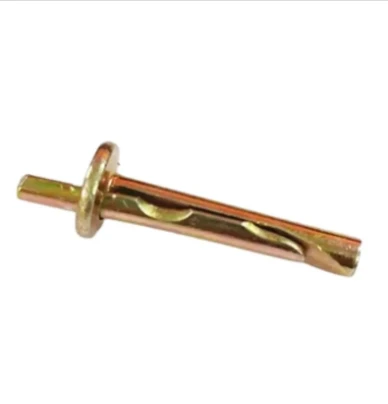dec . 03, 2024 23:17 Back to list
mechanical bolt types
Understanding Mechanical Bolt Types A Comprehensive Guide
Mechanical bolts are critical components in various engineering and construction applications. They are used to securely join two or more parts together, providing the necessary strength and stability. With numerous types of bolts available, selecting the appropriate one for your specific needs can be a daunting task. This article delves into the different types of mechanical bolts, their characteristics, applications, and best practices for selection.
Types of Mechanical Bolts
1. Hex Bolts Hex bolts are one of the most common types used in construction and manufacturing. They possess a hexagonal head and are typically used with a nut. These bolts provide good tensile strength and are suitable for a wide range of applications, including structural connections and machinery.
2. Carriage Bolts Featuring a rounded head and a square neck, carriage bolts are designed to be inserted into a hole and are typically used in wood-to-wood applications. Their unique shape prevents the bolt from turning during tightening, making them ideal for securing wooden structures, such as furniture and deck railings.
3. Lag Bolts Also known as lag screws, these heavy-duty bolts have coarse threads and are often used in wood construction. Their larger design allows for significant load-bearing capabilities, making them suitable for joining heavier wooden beams or framing.
4. Machine Bolts Machine bolts have a flat head and are used to secure machines and equipment in an industrial setting. They usually require a nut to be fastened securely and can handle high tension loads, making them ideal for mechanical assembly work.
5. Socket Head Cap Screws These bolts have a cylindrical head with a hex socket and are employed in high-stress applications due to their ability to be tightened with a hex key. Socket head cap screws offer high clamping force and are commonly utilized in machinery and automotive industries.
6. Shoulder Bolts Shoulder bolts feature a smooth, cylindrical shoulder between the head and the threaded portion. This design allows for rotation and is often used in applications where pivoting or bearing motion is required, such as in hinges and levers.
7. Anchorage Bolts Used primarily in construction for anchoring structures to concrete, anchorage bolts provide essential stability and safety. They can be cast in place or post-installed, depending on the requirements of the project.
mechanical bolt types

8. Eye Bolts Eye bolts have a looped head, enabling them to be used for towing, lifting, or securing objects. They are essential in applications where cables or ropes need to be attached securely.
Selecting the Right Bolt
When choosing a bolt for your application, consider the following factors
- Material The material of the bolt affects its strength, corrosion resistance, and temperature tolerance. Common materials include carbon steel, stainless steel, and alloy steel. For harsh environments, stainless steel or coated bolts may be preferable.
- Size and Thread Pitch Ensure the bolt’s diameter and length are suitable for your application. The thread pitch, which determines the spacing between the threads, impacts how the bolt engages with the mating part, affecting the overall assembly strength.
- Load Requirements Always assess the load that the bolt will bear. Some applications may require high tensile bolts, while others might need shear-resistant options.
- Environment Consider the environmental conditions, such as moisture, temperature extremes, or exposure to chemicals, which can impact the bolt's longevity and performance.
Conclusion
Understanding the various types of mechanical bolts and their applications is crucial for engineers, manufacturers, and builders. Proper selection of bolts ensures the safety and functionality of an assembly, directly affecting the efficiency of projects. By considering factors such as material, size, load requirements, and environmental conditions, you can select the most suitable bolts for your needs. In doing so, you contribute to the reliability and durability of the structures and machinery involved, ultimately leading to successful outcomes in various engineering endeavors.


